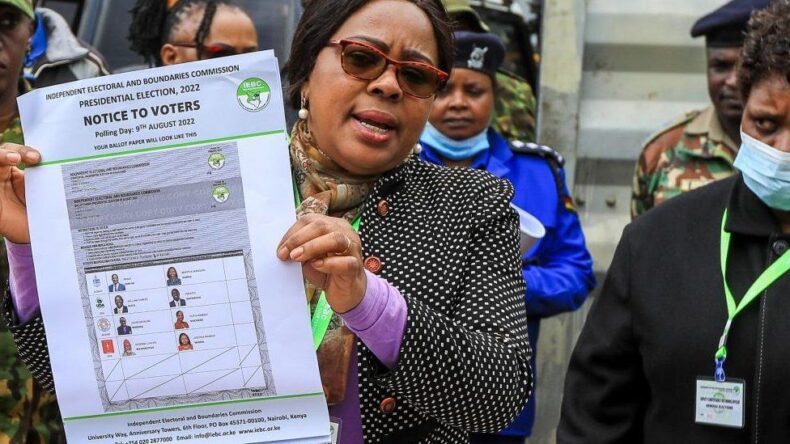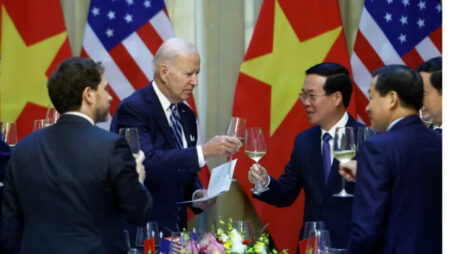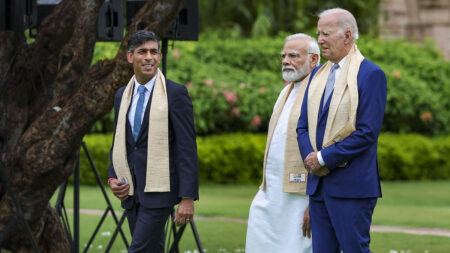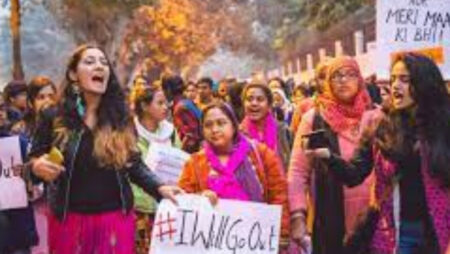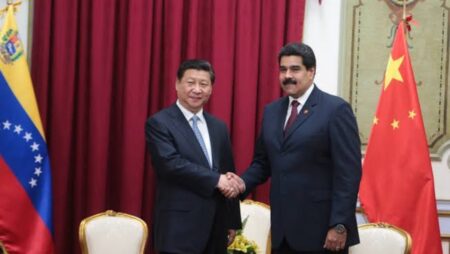Following an intensive campaign dominated by discussions about the expense of living, unemployment, and corruption, Kenyans will elect their new president.
After serving the constitutionally mandated two terms, outgoing President Uhuru Kenyatta is endorsing his former rival Raila Odinga, age 77, to succeed him.
After a disagreement with 55-year-old Deputy President William Ruto, who had anticipated being supported, he made his choice.
Kenyans who want to vote are enrolled in their millions.
A mix-up of ballots in some locations for some of the votes in other elections that are taking place concurrently has once again called into question how the main election was organized.
Voting will be available for 11 hours starting at 6:00 local time (03:00 GMT). Voting will be open to anybody in line when it closes.
The Election Commission violated the law.
The Supreme Court determined that the electoral commission had broken the law when it came to the electronic transfer of the vote totals from the polling places, leading to the annulment of the results of the most recent presidential election in 2017.
Judges decided that there had been “illegalities and irregularities.”
Mr. Odinga, the primary opponent at the time, boycotted the rerun, which Mr. Kenyatta won.
Wafula Chebukati, the head of the electoral commission and the man in charge of the 2017 election, has repeatedly made an effort to convince Kenyans that his staff is up to the task this time.
But the scheduling issues on Monday have put further pressure on him.
Baba v Hustler
The contest between front-runners Mr. Odinga and Mr. Ruto appears to be close.
Mr. Odinga, a long-serving opposition figure known to his fans as Baba (the word for “father”), is seeking the presidency for a fifth time. Mr. Ruto, who calls himself a “hustler” in an effort to emphasize his connection with regular Kenyans, will be making his maiden run for the presidency.
David Mwaure and George Wajackoya, two further contenders, are also running.
Despite the fact that issues have dominated the campaign, ethnic allegiance may also have an impact on voters’ choices.
The largest ethnic group in the nation, the Kikuyu, had no major candidates for the first time in the multi-party era.
But both have selected Kikuyu running mates because they are aware how important those votes are.
Voter logistics
The Independent Boundaries and Electoral Commission (IEBC) is under pressure to hold free and fair elections, particularly after the Supreme Court mandated a second round of voting in the presidential race.
Due to a ballot mix-up, the IEBC Chairperson Wafula Chebukati stated on Monday that the governorship elections in the counties of Mombasa and Kakamega will be postponed. Additionally, earlier in the week, seven personnel were fired for a variety of infractions, including contacting a local politician in western Kenya.
Given worries about voter indifference, that may have an impact on neighbouring counties’ voting participation.
Despite the fact that two-thirds of Kenya’s 56 million population is under 35, just a third of the 22 million registered voters are in the 18–35 age bracket.
Voting process
To prevail in the first round of the presidential election, a candidate must:
- At least 25% of the votes cast in a minimum of 24 counties
- more than half of all votes cast nationwide.
Additionally, voters will select county governors, county assembly members, 47 women’s representatives to the National Assembly, and MPs and senators to serve in the national parliament.
On election day, voters will have their fingerprints scanned to verify their identification, but if the devices malfunction, a written register can also be utilised.
Then, for each election, a voter will be handed a coloured ballot paper, which they will mark in a private booth and then place in the appropriate ballot box.
Soon after voting is completed, counting will begin at the polling places. The final tally will then be photographed by officials, who will subsequently submit the picture to the constituency and national counting centres.
The media, political parties, and civil society organisations have been asked to compile their own tallies using the official results announced at the more than 40,000 voting places in order to maintain transparency.
However, only the electoral commission has the authority to proclaim a winner after scrutinising the paper and electronic ballots submitted to the national tallying centre.
The leading contenders for president have sworn to respect the outcome of the vote.







